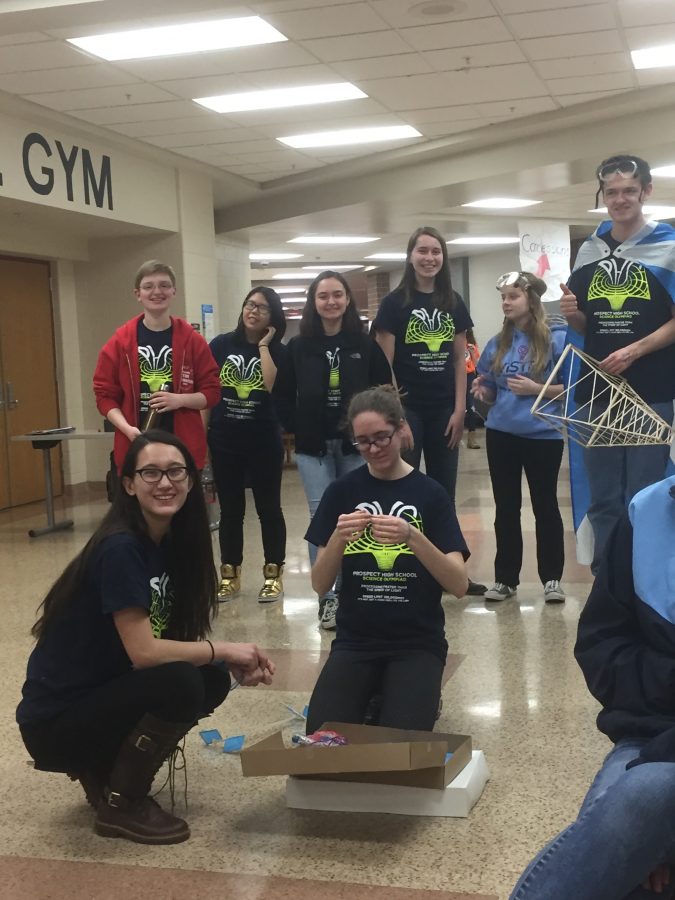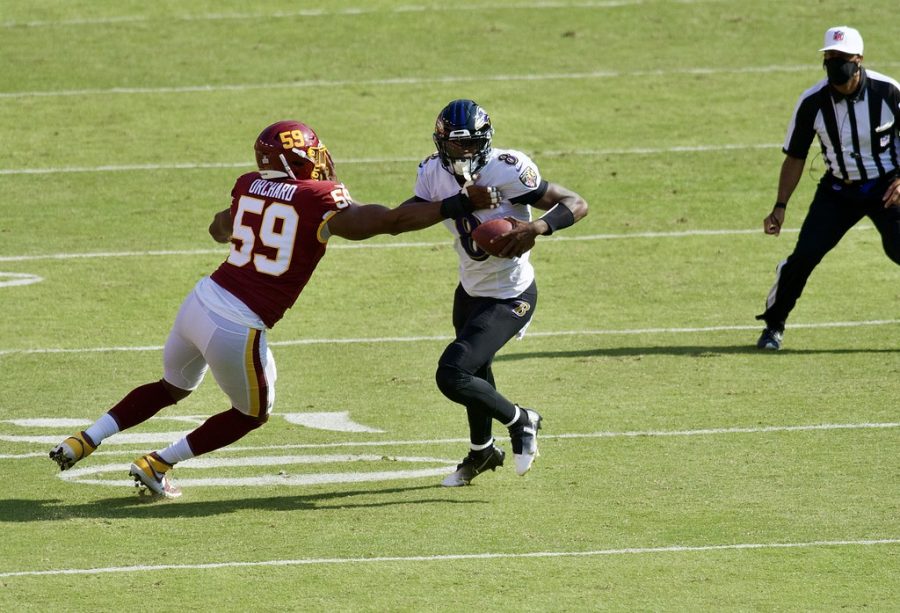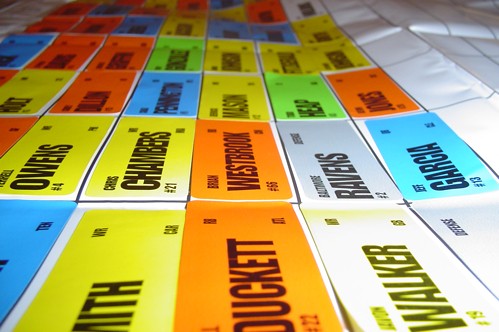By David Fang, staff writer
When he was a freshman, senior Joe Doner joined Science Olympiad not knowing what to expect. At first only joining because his friends were in it, he has since risen to become one of the two captains of the team along with sophomore Suzanne Harms.
“[During freshman year, Science Olympiad] was something interesting, something to put on a transcript and that a couple of my friends were doing,” Doner said. “But now it’s something that I’m really invested in.”
So far this season, the team has attended two invitationals: one at Palatine High School and one at Huntley High School. Science Olympiad sponsor Kathleen Brej says the team has been relatively successful with both the junior varsity and varsity teams medaling at every invite. At Palatine on Nov. 19, nine teams medaled. Later on Feb. 4 at Huntley, the team improved with 11 individual teams medaling.
Doner and the other 60 members are often placed in multiple events. Junior varsity members have one or two events and varsity members have three or four. All events are in teams of two, with the exception of Experimental Design, which has three members. Doner is in Ecology, Dynamic Planets, Invasive Species and Towers. In order to be placed in events, members take a test at the beginning of the year to determine areas of expertise. They then list their top five event choices and are placed accordingly, according to Brej.
The team uses a point system that keeps track of individual participation and competition results to determine placement on varsity or junior varsity. This point system also helps with placing members in leadership positions like captain.
Science Olympiad events span over five categories: Life, Personal and Social Science; Physical Science and Chemistry; Inquiry and Nature of Science; Technology and Engineering; and Earth and Space Science with 23 events in total. The events swap out every few years to keep a legacy of materials from building up.
Senior Meghana Chigurupati, who joined during her junior year, says that the diversity of events adds to the interest in Science Olympiad.
“You have everything from rocks and minerals to building a tower out of balsa wood to robotics, so if you’re interested in something, you definitely get the chance to explore it,” Chigurupati said.
Brej also says the build events — events where teams are required to construct a device to compete with — make Science Olympiad unique. She cites events like Helicopters, where students are required to build a rubber-band-powered helicopter that tries to attain maximum flight time, and Electric Vehicle, where teams build a device that attempts to reach a target point in shortest amount of time, as examples. These differ from other events where you simply have a written test to complete.
Competition is typically an all-day affair. The team often arrives at Prospect at around 5:30 a.m. and competition concludes in the late afternoon with awards. During competition students are given a schedule with the specified event times they are responsible for while sponsors go off to judge events. Each event takes up to about an hour.
Team meetings are every Thursday. According to Brej, they are a time when teams are able to touch base with each other. Students in build events also frequently meet on their own time to make use of tools from Prospect’s engineering lab. Non-build members often prepare with the vast amount of study materials online and create their own notes. Doner says that the best way to prepare is to continuously remake notes to internalize the information. Students also hold outside study sessions led by the captains.
Science Olympiad has also aided members in determining future career choices. Doner say that by participating in Ecology and Invasive Species, he has found his interest in environmental science as a possible career choice. Chigurupati also says she has looked into science as a career choice, specifically considering artificial intelligence.
“There is a place for everyone and an event for any kind of interest that you could possibly have,” Brej said. “There is always something new to try out.”
Categories:
Science olympiad works towards success, places at invites
March 2, 2017
0
Donate to ProspectorNow
This coming fall, we plan on traveling to the 2025 National High School Journalism Convention in Nashville, Tennessee, where we'll learn from professionals and get better at what we do: making the best multimedia student journalism in the state. If you've ever found anything of worth on this website, please consider donating to offset the cost.
More to Discover










































































